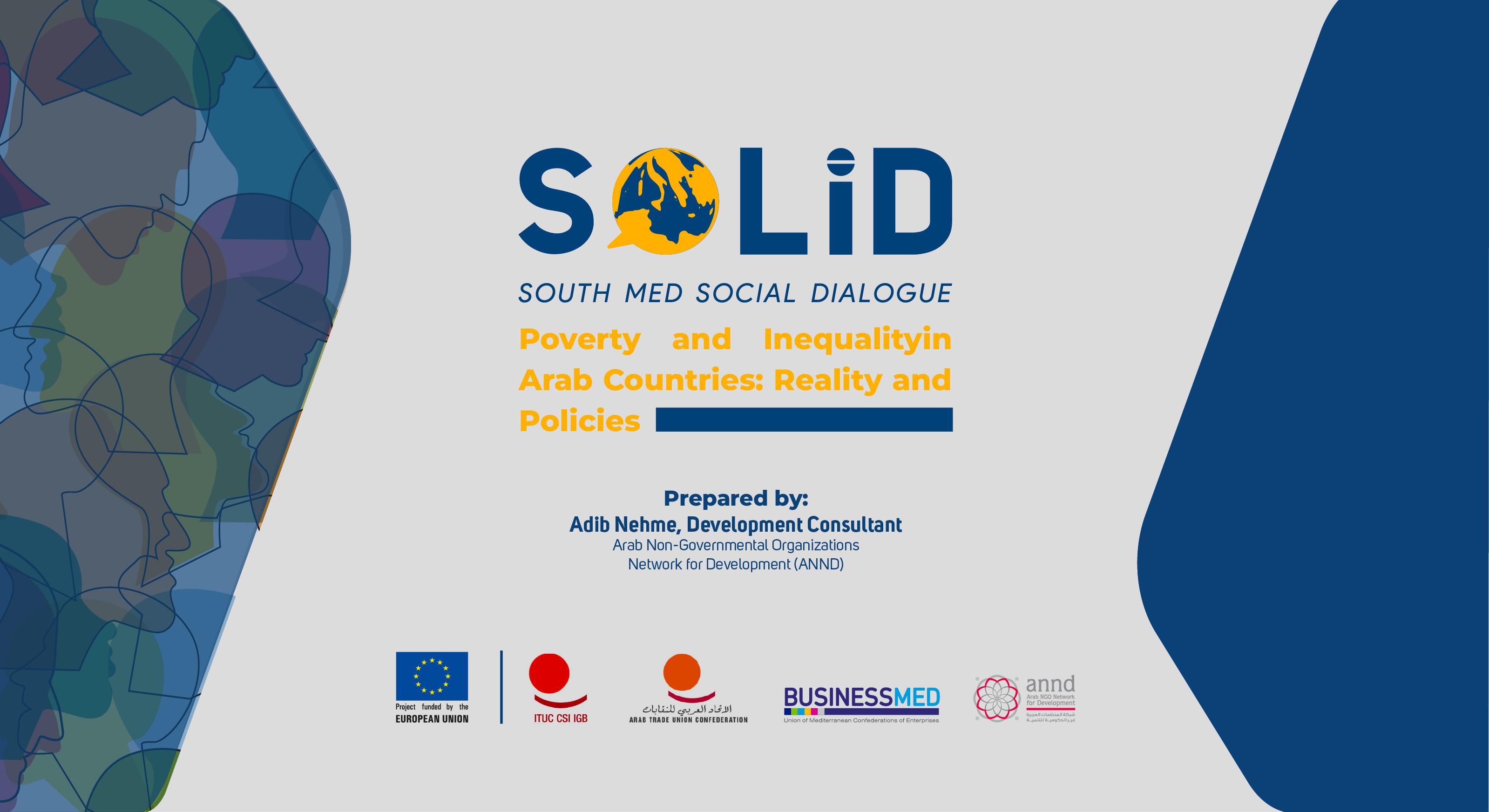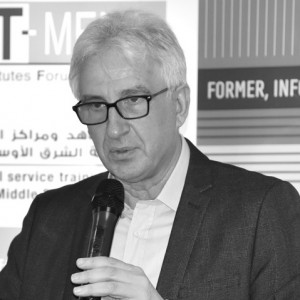
Poverty and Inequality in Arab Countries: Reality and Policies
Adib Nehmeh

Poverty and Inequality in Arab Countries: Reality and Policies - Adib Nehme
Please click here to read the full report
This paper analyzes the reality of poverty and inequality in the Arab countries of the southern Mediterranean and the policies adopted to tackle these two questions. The paper adheres to recognized international scientific research standards, but it is not an academic product in the narrow sense. The goal of the SOLID project (in the context of which this paper was prepared) is to stimulate social dialogue and enable development actors, especially civil society organizations (CSOs) and trade unions, to use its content in dialogue, advocacy, and influencing policies. Based on this practical goal that ultimately seeks social change, the paper avoids unnecessary exaggeration in theoretical analysis without neglecting what is necessary. It also considers the debate with current ideas and perceptions regarding poverty and inequality and appropriate policies to combat them, making the content more suitable for advocacy and dialogue. The paper also focuses on ideas circulating among governments, their ministries concerned with poverty and inequality, relevant regional organizations such as the League of Arab States (LAS), United Nations organizations, and international financial institutions, considered enormously influential actors in building perceptions of poverty and inequality, and in proposing or imposing specific policies to "address" them. It also adopts a critical approach based on the fact that the continuing deterioration in the standard of living and the worsening of inequality are strong indications of the ineffectiveness of the policies followed by national, regional and international governmental parties, or their significant shortcomings, at the very least.
The paper studies the reality of poverty and inequality at the regional level in general, including the Arab countries for which data are available, with a special focus on the six countries included in the "SOLID" project, namely, Jordan, Morocco, Tunisia, Lebanon, Algeria, and Palestine. These countries fall within the category of countries with a medium level of development and growth and have relations with the European Union. They are all on the Mediterranean (except Jordan). In general, they give a clear idea of the average situation of the Arab region. However, there is a need for more specific research into the situation of the Gulf Cooperation Council (GCC) countries and the least developed countries (LDCs).
Within the group of included countries, there is a degree of diversity in the economic and living situation, the size of the population, the nature of the regime, and the general situation, whether in terms of the occupation in Palestine, the severe and comprehensive crisis in Lebanon, or the political and institutional crisis in Tunisia. Thus, it is possible to monitor the diversity in the issue, policies, the role of actors, and several points of similarity within the broader regional framework, which will be addressed when reviewing international and regional reports or LAS documents on combating poverty.
Please click here to read the full report
Recent publications

